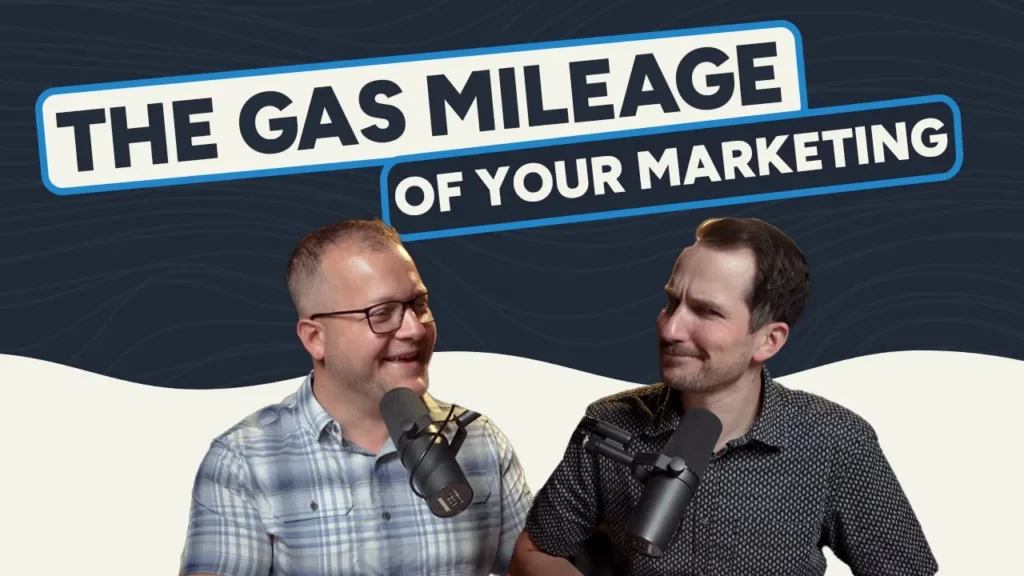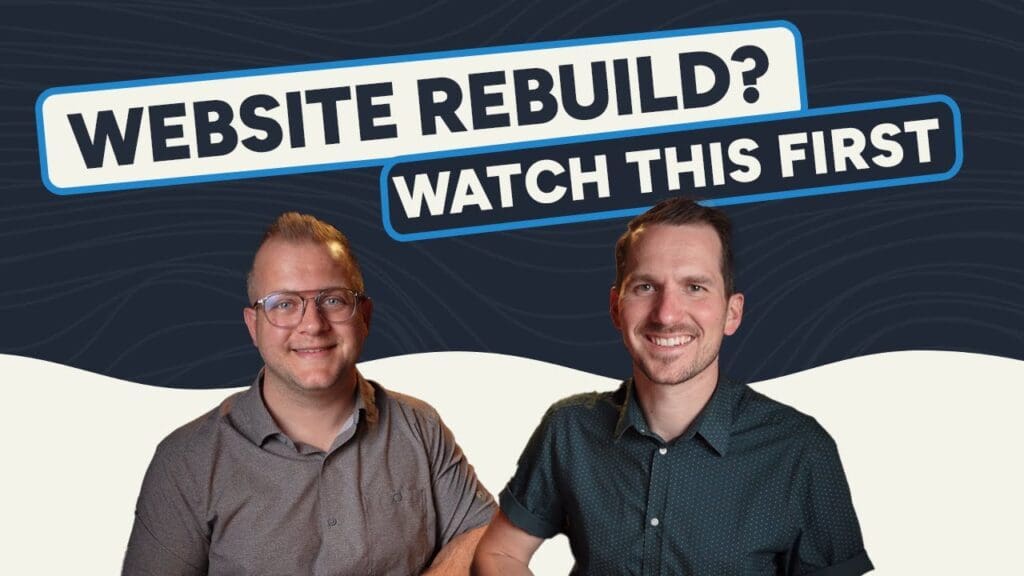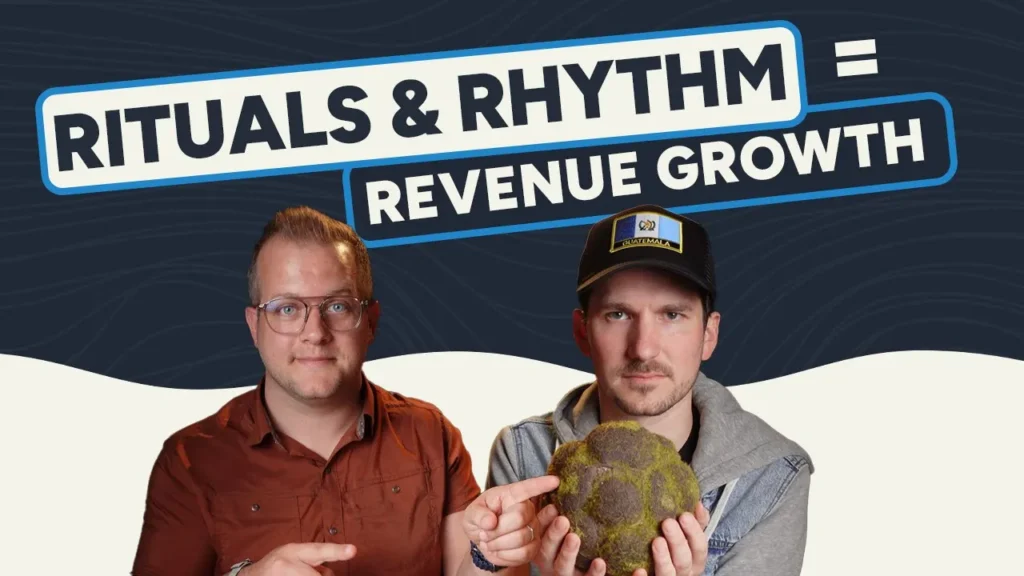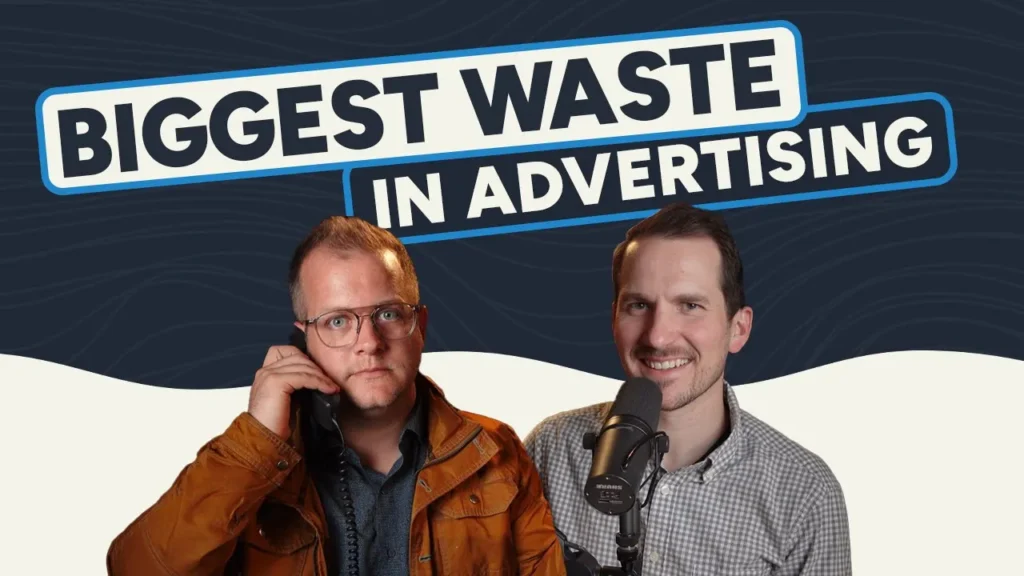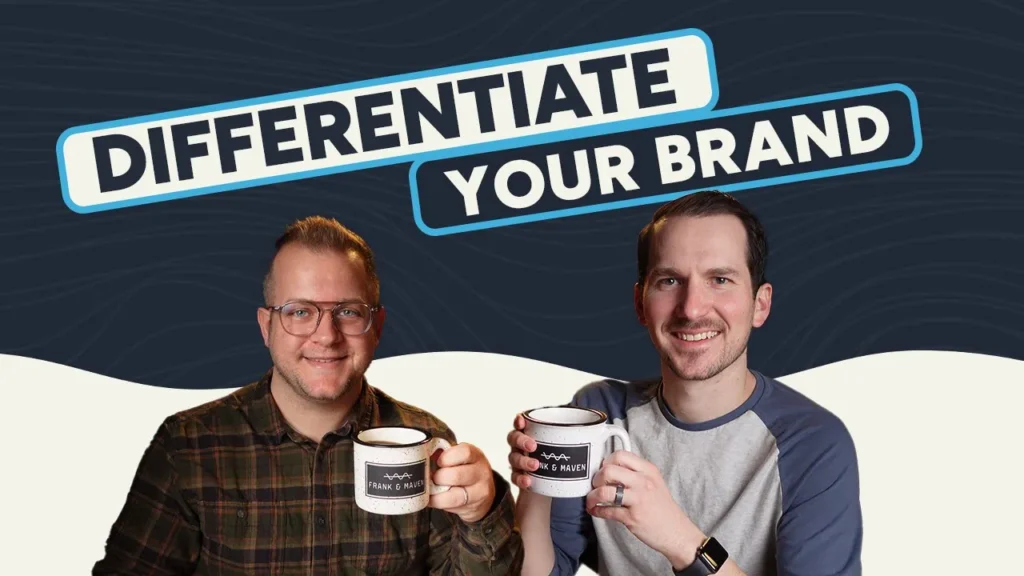Megan Ellis 0:00
An agency of record is the keeper of that overall strategy. So if you don’t have an agency, that’s fine, as long as you have a designated person that has a handle and is taking accountability of every single marketing initiative that’s going out under your roof that they’re saying, yes, that matches our strategy. Yes, these brand elements are in alignment. Yes, when I see this, I think of this, and it’s all working together in this beautiful flow.
Caleb Agee 0:29
Welcome to the Maven Marketing Podcast. Today is Maven Monday. I am not Brandon Welch, I’m Caleb Agee, and today I’m joined with Megan Ellis, our chief of all things media and business development, and we are here to help you eliminate waste and advertising, grow your business and achieve the big dream. Absolutely. Yeah. So, Megan, what are we going to talk about today?
Megan Ellis 0:51
Today, we are talking about AORs. AOR. An AOR is an agency of record,
Caleb Agee 1:00
yes. So this is a concept that I think is losing its power. Has lost its power. It’s a little bit of an older concept as time’s gone on, but we want to talk about where it still makes sense and what it means today.
Megan Ellis 1:15
Yeah, let’s talk about the history of it, what it is, and then, you know, basically, it’s designed to benefit businesses and business owners. But take us back. Take us back to the history. Okay, the
Caleb Agee 1:26
year is 1786 1786 you are in London. I Yeah. We were talking about whether we should slip into a British accent at this point. Both of us have questionable British accents, maybe, but Megan’s is better than mine. William Taylor opened an office in London, which is literally considered the first agency, advertising agency in history, and then in 1840 so some more than 50 years later, across the pond. Across
Megan Ellis 1:59
the pond. No, mind sketchy in America.
Caleb Agee 2:03
VB Palmer, his name’s Volney. I think I’m pronouncing that, right? Volney. B Palmer opened the first advertising agency in the States, and he is the one who used, who first used the word agent or agency, which is, which was a new concept, right? Doing marketing for a business was one thing, but to be an agent or an agency for that business is a whole nother level, because that business is empowering their agency to act on their behalf. And so he started pioneering. He was big in the you know, back in the day it was print, it was newspapers and things like that, and he had relationships with papers all over the United States, or what parts of the United States we were in in 1840 and he would receive their offers, their media packages, if you will, and then work with his clients to help them find the best places to put their advertisement, which is exactly what an advertising agency maybe does today. Yeah, and so really, really cool. He he would get daily, he would get offers from each newspaper in different metro areas, and they would say, hey, you know, I don’t even know how much it was back then, $1 to put an ad in here, 50 cents or a penny. I don’t even know, you know,
Megan Ellis 3:21
really fun to go back and look up some of those, those old time advertisements that would be, that’d be a good that’d be really cool.
Caleb Agee 3:29
So this early model that Palmer was creating pioneering suggests that the agency really acts as a sort of outside counsel on behalf of the business to speak for them in all matters related to marketing and advertising. And the classic textbook answer, I’m going to give you the textbook definition too, an agency of record or AOR you may hear that said more often, as is a marketing agency that a company or brand contracts with to manage and execute their marketing and advertising needs.
Megan Ellis 4:06
Yeah, really, it’s a, you know? It’s basically a partnership between a business and between an ad agency in which the business just empowers the ad agency to make all marketing decisions on their behalf. That’s right, and so it you know what that means, whenever we have the opportunity to work with a new business, one of the first items that we one of the first housekeeping items that we have is to get our new clients to sign an AOR. Because what that does is that gives us the ability to negotiate, to talk to and to seek out opportunities with our media partners on their behalf, yeah? And so it’s a very important document, not just anybody can be an agency, yeah. So there are several things, several different bullet points that you kind of have to be able to qualify to be an agency. Couple of those are. Sure. You know, typically, you have to have at least three clients or or more that you’re doing this full time, and you’re working on all of their marketing plans. So, so you have to, you have to be credible. Another thing is that you have to, you know, fill out a credit application so that, again, working on that credibility piece. Not just anybody can come in and be an agency. You also have to make sure that you don’t benefit, like you don’t own any part of that business. You’re acting on that business behalf, but you are not benefiting financially, yeah, from, from the business itself. Trying to think just of different, yeah, qualify. There’s,
Caleb Agee 5:41
there’s also, and these change from place to place, but there’s even, like a fiduciary responsibility that the agency has to act in the financial best interest of that client. So it’s not what’s going to earn me the best commissions or the best rate increases, it’s, how will I help that company grow through their marketing? Absolutely,
Megan Ellis 6:03
and it’s a crucial, crucial thing for agencies to have a really great working relationship with all of our media partners. Because a big part of what we do when we’re handling, you know, a marketing plan is, you know, we’ve got to share that, that strategy message, and then the media, we have to share that somewhere. And so, you know, whenever our media partners send us opportunities, like, hey, there’s, there’s a game, do you want to be in this game? Or do you want to be in this, you know, this live show, it’s our responsibility to make sure that we’re sharing that with our clients, and we’re doing that in a timely fashion. That’s right,
Caleb Agee 6:42
yeah. So this relationship has changed over the years. So some of you may be asking like, why does this even matter to me? The lesson here is, I think that somebody really needs to be that go to point person to hold the whole thing together, right? Um, so A lot’s changed since VB Palmer. We have the the technology age. Digital Advertising has entered the scene, and it’s advanced rapidly even the last five or 10 years. Obviously, it’s been around for more, more than that, but we’re watching it change every single week with algorithm updates and all these things. And what that allowed people to do was hire a bunch of different agencies that maybe specialize in very specific pieces of marketing. So you could have, like a social agency, or you could have an SEO agency, you could have somebody working on your website. You could have somebody doing media buying, like, like a TV agency. And you could have a print agency, you could have a radio agency. You could have separate agencies for all these things. You could have a different production house for your video than your radio. Um, and what we’re seeing is that this relationship, this partnership that really should exist, between a marketer and the business, their client that they serve has shrunk to this, like disposable vendor relationship and everybody you know, you have all these little micro vendors that you’re like, hey, you’re responsible for SEO. Are my ranks going up? You’re responsible for Google ads. Are, you know,
Megan Ellis 8:18
are they performing?
Caleb Agee 8:19
Yeah, you’re responsible for social ads. Am I getting leads? Or if people know about me, you’re responsible for TV. Do I hear about it when you know? The How did you hear about us? Checklist was that, you know. And so there’s lots of different medias happening from different people, but the danger is, as soon as you don’t see a result from one of those, usually you kind of just kick into the curb,
Megan Ellis 8:43
yeah, you immediately think, Oh, well, I tried TV, and that didn’t work. But really, you know, taking it back to the Maven method, that’s one of the things that it’s really cool about, you know, having an agency of record, or having an agency at all, in our agency, we we follow the Maven method, and we know that, you know, every single marketing initiative that we take, we understand what the results should be, and we really make sure that our clients are prepped and aware of what to expect, yeah, so making sure that all of these items are under the same umbrella. They’re under the same category. So we because there’s so many brilliant minds in marketing and advertising that if you, you know, allow the radio person to do a radio ad, but the TV person is doing the TV ad. Sometimes those two different messages, although both beautiful and persuasive, they are competing against each other. And so that’s something to be mindful of. Yeah,
Caleb Agee 9:37
and you’re you’re essentially marketing to different companies. Almost you’re splitting your votes right somebody. And what really should happen is what they see from you on social ads and here on the radio, and go on your website, and all of these different things should all work together. They should be this big, cohesive thing. And. And that’s where we kind of hang our hats, is, um, the not wasting money on advertising, absolutely effectiveness, the efficiency of your marketing. And we call this the other side of this, random acts of marketing. So you are randomly like, shooting, shooting, shooting, marketing out from different people, all of which who have no idea what you know, what other hand is doing, right? And that is such a such a dangerous thing. And so what we would encourage you, no matter what is to know one, what are you trying to make happen? What are your business objectives? Because that should be the guiding force. Marketing isn’t just there to because you need to check a box. You need to, you know, have some expenses on on your taxes. Just want to spend some money. You don’t want to just waste and spend money. You want it to help your business grow. And if it’s not doing that, and you don’t or and you don’t know how you want your business to grow, then I’m going to guess that all those six other agencies don’t know that either. And the danger is they will all have different objectives that they either assume or bring to the table. I think that’s
Megan Ellis 11:17
what you’re saying. Is that an agency of record is the keeper of that overall strategy. So if you don’t have an agency, that’s fine, as long as you have a designated person that has a handle and is taking accountability of every single marketing initiative that’s going out under your roof that they’re saying, yes, that matches our strategy. Yes, these brand elements are in alignment. Yes, when I see this, I think of this, and it’s all working together in this beautiful flow. So, you know, there’s different ways to achieve this, but oftentimes, you know, there’s just so many ways to market the business these days that it’s very difficult to make sure that someone is holding up the integrity of the brand and that someone is being accountable for that.
Caleb Agee 12:01
That’s right. And this is something that if you are maybe an in house marketer or a business owner, we’ve seen it done before, it is possible, piece work your marketing, for lack of a better word, right, to have a few different people doing different things. They’re very specialized. Sometimes that can be maybe a more cost effective route, or maybe you haven’t found the all in one type of solution that makes sense. It
Megan Ellis 12:32
does work, especially if they have, like a brand guide or a style guide, different bits of language that they always use. They give this to the billboard company. They give this to the radio station. They share, hey, we’ve been doing these TV ads, so make sure you’re kind of, you know, starting and ending with the same type of message or persuasive angle. It’s possible, it is possible, but it’s rare. It’s rare. Imagine
Caleb Agee 12:54
you have a Google ads like a PPC agency running Google ads for you. Then they have all these headlines on your Google ads when you show up in search results, but then you also have an SEO firm working on your website. They’re in there, changing headlines for the sake of SEO, not conversions for the sake of SEO. Those two can be in competition with one another. That’s
Megan Ellis 13:15
a very good thing. So
Caleb Agee 13:17
you think about that as just a really practical example. Your SEO firm could be in there changing headlines for the landing page that your Google firm is, they’re promising maybe some sort of certain value proposition. And your SEO guy is like, well, I just want to rank for roofing in Tulsa, right? And that there’s not much of a value proposition in being a roofer in Tulsa, and they, that’s what they change the headline to. If there’s not a connecting thread between those two things, they’re going to pull apart, and you one of them is going to lose if neither of them are connected together. That’s
Megan Ellis 13:52
a great example. So
Caleb Agee 13:53
that is what, that is what we’re talking about. If you are doing this, what we would encourage you to do is one at the foundation, what are we trying to make happen? What are our business objectives for this year? And then assess each of these marketing ventures and create the holistic plan. And somebody needs to be holding that plan. If you are doing this, it’s you, right? If you’re an in house marketer or maybe a an owner, this is you that holds this plan and then holds all of these other agencies or these other partners accountable to the plan. Um, we, maybe it’s, maybe it’s obvious, or maybe it’s not we would side with. It’s maybe better to have one person holding that all together, or one agency that maybe is leading the strategy in that. And so sometimes there’s like a lead agency, somebody who is in charge of the strategic agency. So in a larger operation, you have an agency that’s in charge of that, and maybe they’re helping you coordinate with all these different people to make sure that that’s a thread. But that is, that is the power of an agency of record that you. Have somebody that all of this kind of funnels through. It’s less it can, it can change the way the trajectory of the flow of information happens. But that’s actually good in this case, because you keep the integrity of the information. I love it. Yeah. So if you have any questions about an agency relationship, I think this is actually an interesting subject that is very abstract these days. Yeah. And so if you have a question, we would love to hear it. You can email those to Maven Monday at Frank and maven.com and we would love to answer it right here on the podcast, because there are a lot of nuances to this. There’s a lot of ways fees and billing are handled, and we will help you. Yeah, can I
Megan Ellis 15:47
speak to that really quick? One thing is that I feel like oftentimes, whenever business owners are, you know, their business is like their child, and so they have built this business, oftentimes from the ground up, and they’ve created all of these marketing relationships with people that they care very much about. And so I think sometimes there’s a fear to sign an AOR, because they think that maybe that means that relationship goes away. And you know, with our agency, if you have those types of relationships, we always want to encourage those. An agency of record is never designed to be a gatekeeper. It’s designed to help a business thrive. And so you know, if you’re a business owner, you’re wearing a billion hats. You’re getting so many marketing inquiries daily. It’s so nice for you to be able to say, hey, send that to our agency, and we’ll, we’ll discuss it monthly. And at least in our case, we we talk about these things on a monthly basis. And so I just, you know, we strongly encourage business owners to keep the relationships, and I think that that might be, you know, something that people think that’s not true. So,
Caleb Agee 16:52
yeah, well, and I think in some cases, you’ll run across an agency that says, No, I want to have all the power. And so true, you need to tread lightly in that situation and just pay attention to the signals you’re hearing and seeing, especially when you’re creating. The goal would be that you work with this agency of record for years and years and years. Absolutely, marketing agencies, turnover and tenure is shrinking because people are judging them based on short term results, and we believe the law the best results happen in months and years, not in weeks and days, right? And so you need to be thinking, Can I do I imagine myself working with these guys in five years? Yeah? And will they have my best interest in mind? Will they still be on board with what we’re doing? And so, hey, if you enjoyed this, please hit subscribe, rate this podcast, because it helps us so much. We are really trying to help small businesses all over the world. Actually, we’ve had several people overseas, which is really, really cool, so cool from the middle of America, we’re reaching out to Australia and Romania and all kinds of different places. And so please rate you know, rate it with five stars, and share it with your friends if it’s if it’s helpful for you. And if you have any questions again, you can email those to Maven Monday at frankon maven.com this is Megan and Caleb. We’re signing off. And thank you for listening today. Yes, thank
Megan Ellis 18:22
you guys so much. Yeah, come back next week. Yeah,
Caleb Agee 18:25
this is we’ll be here every Monday because marketers who can’t teach you why
Megan Ellis 18:30
are just a fancy lie. See ya.


